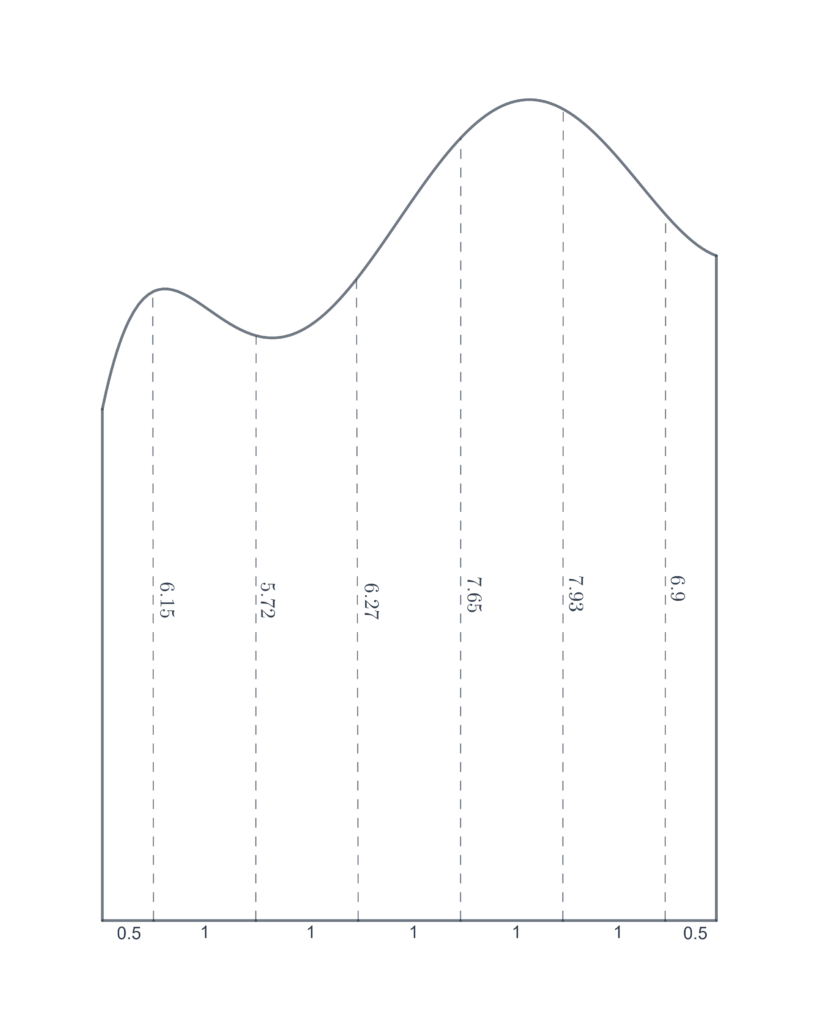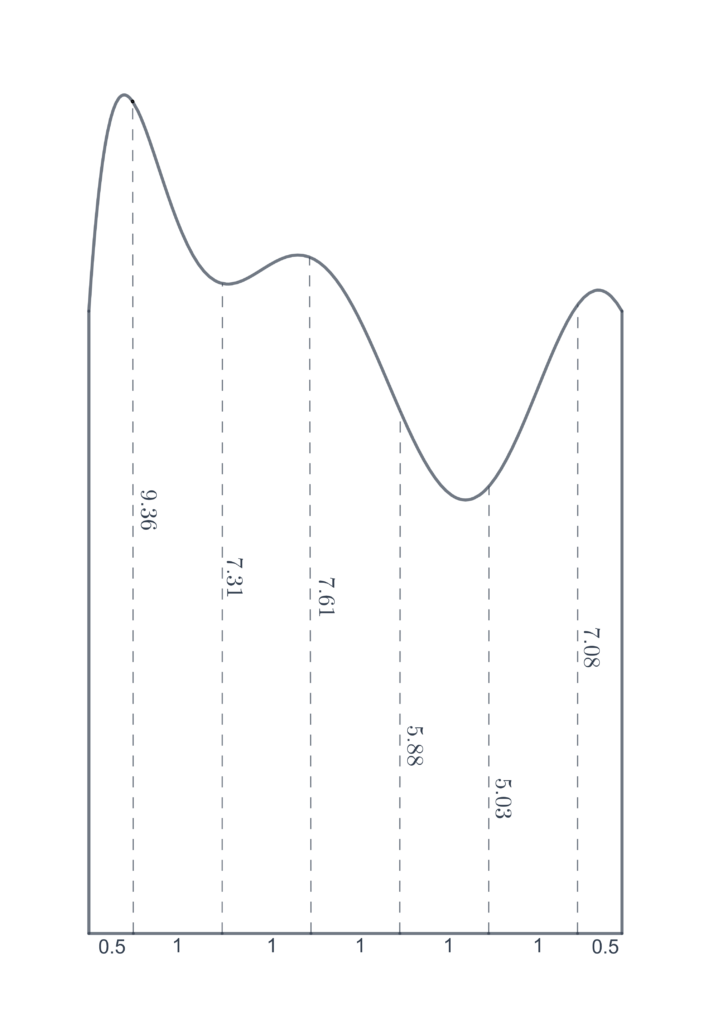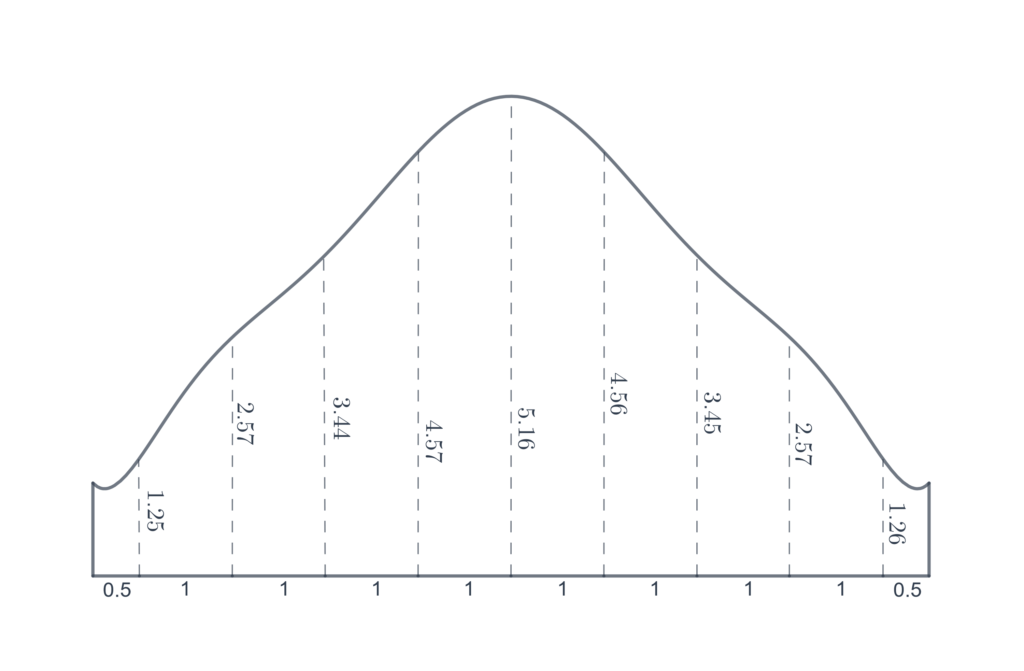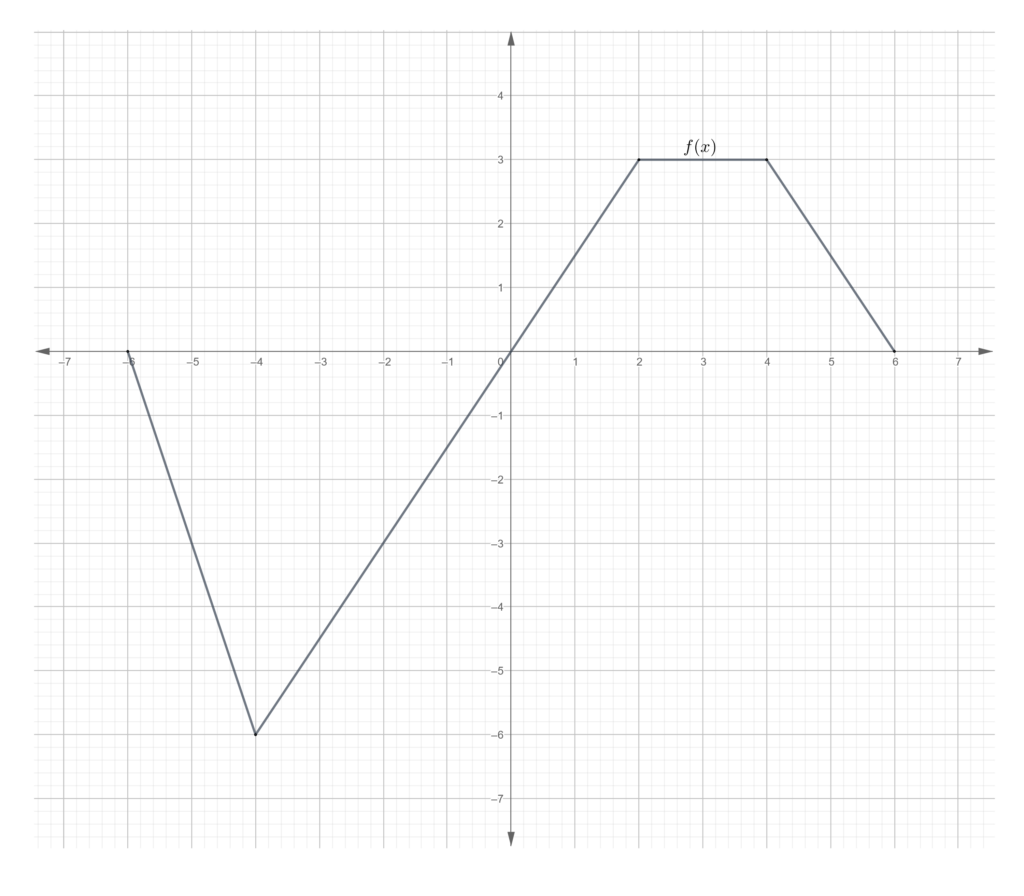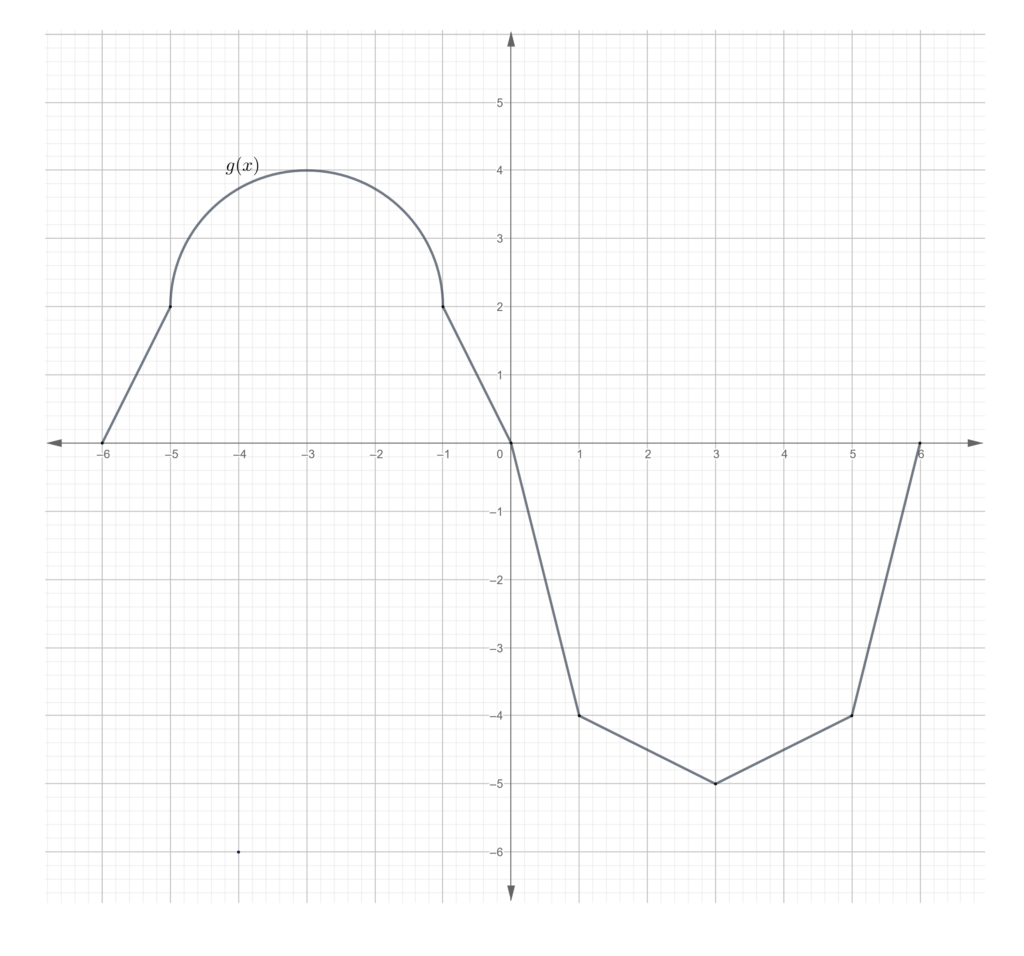Summations
Sigma notation
Exercises
Problem set
Express each of the following using sigma notation.
Problem set
Express each of the following using sigma notation.
Problem set
Give the hundredth term in each of the following.
Riemann Sums
Exercises
Problem set
For each of the following problems, approximately calculate the area of the figure, by dividing it up into rectangles. Assume the lengths of line segments as shown.
Problem set
- The following table gives values for a non-negative continuous function. Approximate the area between the function’s curve and the X-axis from
through
.
- The following table gives values for a non-negative continuous function. Approximate the area between the function’s curve and the X-axis from
through
.
- The following table gives values for a non-negative continuous function. Approximate the area between the function’s curve and the X-axis from
through
.
- Give an approximation of the area between the curve
and the X-axis over the interval
, by dividing the interval is
sub-intervals.
- Give an approximation of the area between the curve
and the X-axis over the interval
, by dividing the interval is
sub-intervals.
- Find the approximate area under the
curve over
, by dividing the interval is
sub-intervals.
- Give an approximation of the area between the curves
and
over the interval
, by dividing the interval into
sub-intervals.
- Give an approximation of the area between the curves
and
over the interval
, by dividing the interval into
sub-intervals.
- Give an approximation of the area between the curves
and
over the interval
, by dividing the interval into
sub-intervals.
Problem set
- A flower vase is of height
inches. It has different cross-sectional areas at different heights from its base. The cross-sectional areas are shown in the table below.
Height from base (in inches) Cross-sectional area (in square inches) Approximately calculate the volume of the inside of the flower vase.
- A flower vase is of height
inches. It has different cross-sectional areas at different heights from its base. The cross-sectional areas are shown in the table below.
Height from base (in inches) Cross-sectional area (in square inches) Approximately calculate the volume of the inside of the flower vase.
- A concrete mixer is of height
feet. It has has circular cross-sections with different radii at different heights from the base. The cross-sectional radii are shown in the table below.
Height from base (in feet) Radius of cross-section (in feet) Approximately calculate the volume of the inside of the mixer.
- The following table gives the speedometer readings of speed of a car at various points of time.
Time (in minutes) Speed (in mph) Approximately calculate the distance traveled by the car in
minutes.
- The following table gives the speedmeter readings of speed of a plane at various points of time.
Time (in minutes) Speed (in mph) Approximately calculate the distance traveled by the plane in
minutes.
- A water tank had
cubic feet of water. At time
seconds, water was let into the tank. The rates of flow of water at different times are shown in the table.
Time (in seconds) Rate of flow (in Cubic feet/sec) Approximately calculate how much water would be in the tank at
seconds.
- Oil is being pumped out into a tanker from an oil well. When checked at
AM, the tanker already had
gallons of oil. The following table shows the rates of pumping oil out at various points of time.
Time Rate of pumping out (in gallons/sec) AM
AM
AM
AM
AM
AM
Approximately calculate how much oil would be in the tank at
AM.
feet of a heavy iron chain is dangling from the roof of a building along a wall of the building. If the iron chain weighs
lb/foot, approximately calculate the work in foot-pounds that needs to done in order to pull the entire chain onto the roof. From physics, the work done in pulling an object of weight
lb up a distance of
feet is given by
foot-pounds.
Problem set
- The velocity of a plane from the start to the liftoff at
seconds is given by the function
. Approximately calculate the distance traveled by the aircraft during the takeoff using a sum of
terms.
- A water tank is of height
feet. The cross-sectional area of the tank at height
feet from its base is given by the function
square feet. Express the volume of the water tank using a sum of
terms.
- A freight container of height
feet has circular cross-sectional areas. If the radius of the cross-section at height
from the base is given by
, express the volume of the container as a sum of
terms.
- The sum
approximates the area under a certain curve over a certain interval. Identify the curve and interval.
Definition and notation
Exercises
Problem set
Using the geometric interpretation of as the area under the curve
, evaluate the following.
Problem set
In each of the following problems, evaluate the integral based on the graph of the function.
Problem set
Consider an interval . Let the interval be divided into
sub-intervals each of width
. Let
be a point in the
th sub-interval. Express each of the following in the notation of the definite integral.
Properties
Exercises
Problem set
Assume an integrable function .
- If
, what can you say about
?
- If
, what can you say about
?
- If
, what can you say about
?
- If
, what can you say about
?
- If
, what can you say about
?
- If
, what can you say about
?
- If
, what can you say about
?
Problem set
Assume an integrable function .
- If
and
, what can you say about
?
- If
and
, what can you say about
?
- If
and
, what can you say about
?
- If
and
, what can you say about
?
- If
and
, what can you say about
?
- If
and
, what can you say about
?
Problem set
Assume an integrable function .
- If
, what can you say about
?
- If
, what can you say about
?
- If
, what can you say about
?
- If
, what can you say about
?
- If
, what can you say about
?
Problem set
Assume integrable functions and
.
- If
and
, what can you say about
?
- If
and
, what can you say about
?
- If
and
, what can you say about
?
- If
and
, what can you say about
?
- If
and
, what can you say about
?
Problem set
- A straight line has equation
. If
, find the value of
.
- Straight line on either side of origin
- Even and odd function integrals
Average value of a function
Exercises
Problem set
- Find the average value of the function
in
.
- A car’s speed is given by
, where
is given in minutes. What is the average speed of the car from the starting time to
minutes.
- The average value of a non-negative function in
is
.
- What is the area between the graph of the function and the
-axis, measured between
and
on the
-axis?
- How would you answer the above the question if the function is not given to be non-negative?
- What is the area between the graph of the function and the
Finding the value
Exercises
Problem set
Evaluate the following.
Problem set
Evaluate the following.
Problem set
Evaluate the following.
